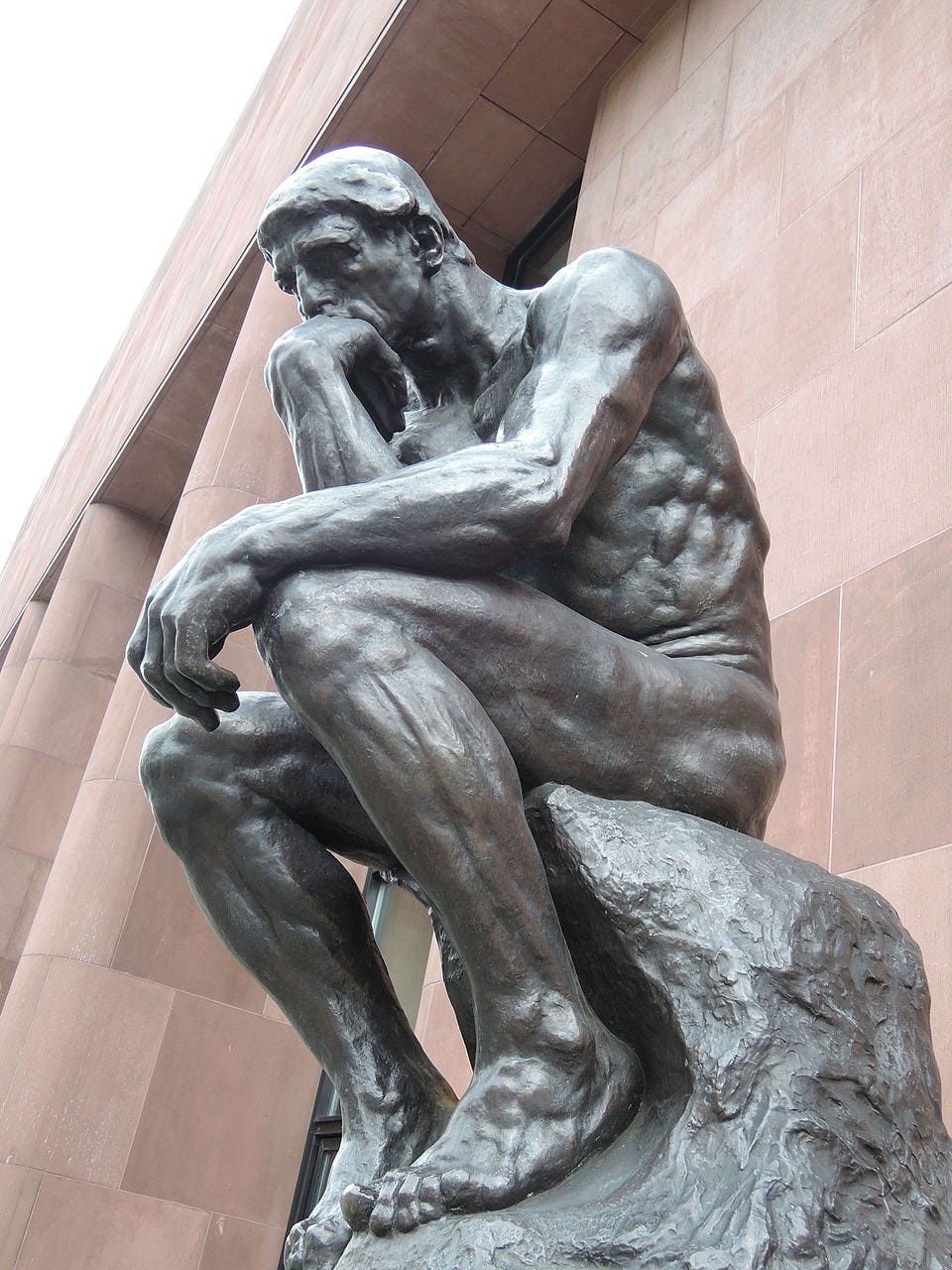Above: “The Thinker” by Auguste Rodin (1840-1917).
The look on my students’ faces was rewarding; it told me I had done my job. It was the final section of the day, and we were discussing skeptical hypotheses. It was their first foray into modern epistemology, and at first they were incredulous.
“Sure,” they thought, “perhaps it is (strictly speaking) possible that I am dreaming, or that I was created five minutes ago with a fake memory, or that I am a brain-in-a-vat, so that I don’t really know all the things I think I know. So what? We have no reason to believe that those scenarios are really true; and they are absurd anyway. Who would be fool enough to talk about them, aside from a philosophy teacher?”
Yet a series of questioning led them to the view that, not only are the hypotheses possible, but there is no way—at any rate no obvious way—to rule them out. Our experience and perceptions, among other things, would be exactly as they are if any of the possibilities were actual.
The students then seemed convinced that something like the following might well be true:
I don’t know that I am not a brain-in-a-vat.
I wrote that proposition down, as numbered, in the middle of the board. But the incredulity remained, almost unabated. The implications were not yet appreciated. Then I wrote upon the board, below the previous proposition, a premiss that made the difference:
If I know that I have hands, then I know that I am not a brain-in-a-vat.
I proceeded to write the number three at the bottom, followed by ‘therefore,’ and that’s when I saw it. Before the conclusion was stated, before the consequence was fully drawn out, something clicked. It was a subtle smile, but one of wonder, curiosity, and surprise. Jack, a computer science major, sat back in his chair and nodded with a grin. “What am I about to write?” I asked him. He replied correctly:
Therefore, I don’t know that I have hands.
Everyone knew what it meant. I had talked about modus tollens and other argument forms. And I had already mentioned that the claim that I have hands is but one example of many mundane things we take ourselves to know. Knowledge, nearly all of it, seemed under threat.
You know that look if you are a teacher. It’s why you teach. It signals the light, as it were, coming on. But the important thing was not that the students had to worry about global skepticism. The important thing—the priceless thing—was that they were better able to understand the value of questions like whether knowledge requires certainty and how we are to understand a knowledge that does not. They felt the force of it all. Moreover, they learned that even seemingly innocent propositions can have big implications, and that they must follow the argument wherever it leads. And, if they don’t like where it leads, they must find where it went astray, or else accept the consequence.



The fact that I know I have hands should have had the weight of a counterfactual which serves to show the absurdity of the premise. If I thought I were a brain in a vat, then seeing all those other seemingly intelligent beings - including philosophy teachers - with whom I reason and argue (even about this thought experiment) evidently not in vats, shows me that the notion is absurd.